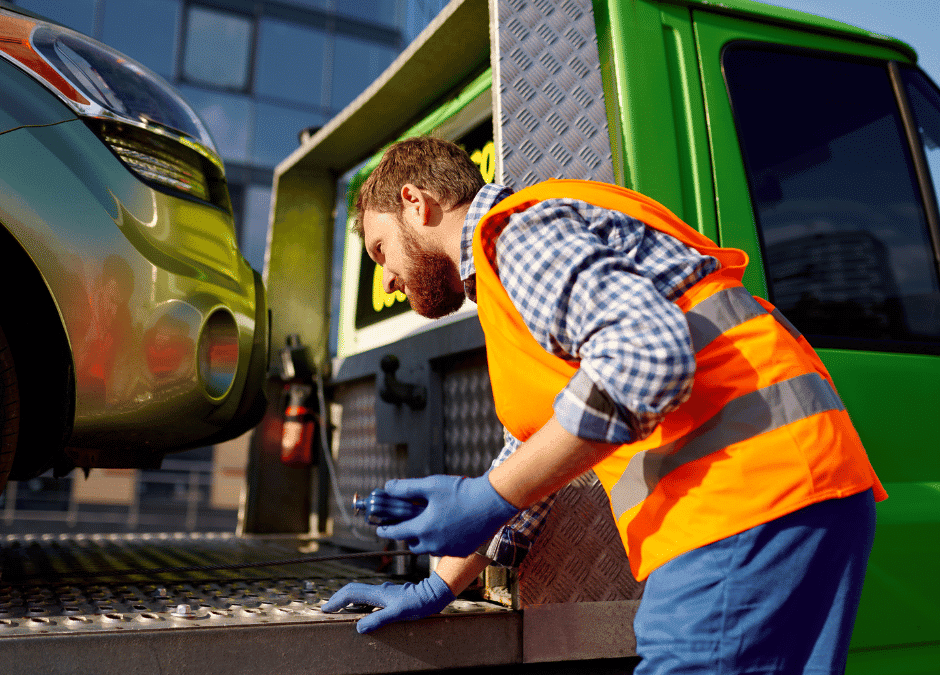Towing your car does not have to lead to transmission damage. This concern is common among car owners and stems from several prevalent myths. In this comprehensive guide, we address these misconceptions and provide accurate, reliable information to ensure you make informed decisions about your towing needs. Understanding how towing affects your car will help dispel fears and prepare you for those moments when you might need a tow without risking your vehicle’s health.
Common Myths About Towing and Transmission Damage
It’s essential to differentiate fact from fiction when it comes to towing and transmission damage. Many drivers harbor misconceptions that can lead to unnecessary worries.
- All Towing Damages Transmissions: This is a myth. Properly executed towing will not automatically damage a vehicle’s transmission. Techniques and equipment have evolved to protect cars during towing.
- Automatic Cars Cannot Be Towed Without Damage: Not true. Automatic vehicles can be safely towed using the right methods, such as a flatbed tow truck.
- Towing Always Requires Major Repairs Afterwards: This is incorrect. If towing is done correctly, there should be no need for repairs solely due to the towing process.
- Four-Wheel Drive Vehicles are Safe From Damage When Towed: Misleading. Without using the appropriate towing method, even four-wheel drive vehicles can suffer transmission damage.
- Any Towing Company Can Tow Any Vehicle: False. Specialized knowledge and equipment are often required to safely tow different types of vehicles.
Understanding these myths helps vehicle owners make better decisions and reduces anxiety about towing and its effects on the vehicle.
How Towing Affects Your Vehicle
The effect of towing on your vehicle can vary greatly depending on several important factors. Let’s look into how towing impacts different types of cars.
- Vehicle Type and Drive Train: The make and model of the vehicle determine the safest towing method. Front-wheel, rear-wheel, all-wheel, and four-wheel drives require different considerations to avoid damage.
- Towing Equipment Used: The type of towing equipment is critical. Flatbeds, two-wheel tows, and dollies each interact with the vehicle differently and can influence the risk of damage.
- Duration and Distance of Towing: If not done correctly, longer tow distances can increase the risk of potential damage. It’s essential to secure the vehicle properly and reassess as needed.
- Vehicle Condition: A vehicle’s existing condition can affect how it withstands towing. Issues like low tire pressure or existing mechanical problems can exacerbate risks during towing.
- Method of Towing: How the vehicle is actually towed plays a significant role. Ensuring the car is aligned correctly on the tow truck and secured can prevent unnecessary strain on the transmission.
Understanding these aspects can help vehicle owners prepare better when they need towing services and ensure that their vehicles are treated with the utmost care.
Key Factors That Influence Transmission Damage During Towing
Transmission damage during towing is influenced by several factors, including the vehicle’s drive type (front, rear, all, or four-wheel drive) and the towing method used. For example, towing a four-wheel-drive vehicle without utilizing a flatbed can lead to significant transmission wear. Knowledge of these factors helps ensure that you choose the safest towing option for your specific vehicle type, reducing the risk of transmission damage.
Proper Towing Techniques to Prevent Transmission Damage
Employing proper towing techniques is vital for protecting your car’s transmission. Each vehicle type requires specific handling; for example, front-wheel-drive cars should ideally be towed with the front wheels off the ground. Consulting with professionals who can utilize the right equipment and methods for your vehicle ensures that towing is done safely and appropriately, preventing unnecessary transmission strain.
The Role of Professional Towing Services in Protecting Your Car
Choosing professional towing services like McDonough Towing ensures that your vehicle is handled correctly, significantly reducing the risk of transmission damage. Our expertise in various towing techniques and access to the right tools means your vehicle is in safe hands. Professional services understand the nuances of different vehicle requirements and adhere strictly to the best practices in towing.
What to Do If You Suspect Towing Caused Transmission Damage
If you suspect that towing has damaged your transmission, the first step is to consult a trusted mechanic for a comprehensive inspection. Quick and accurate diagnostics are key to promptly addressing any issues, potentially saving you from costly, more extensive repairs. It’s essential to act immediately to mitigate further damage and ensure your vehicle remains operational.
How to Choose the Right Towing Method for Your Vehicle
Selecting the appropriate towing method is critical for avoiding transmission damage. Whether your vehicle requires flatbed towing, two-wheel towing, or dolly towing depends on several factors, including the type of vehicle and its specific transmission mechanics. Understanding these details helps you choose the safest and most effective towing method, ensuring your vehicle’s longevity and performance.
Contact Us for Safe and Reliable Towing Services
Understanding the facts about towing and transmission safety is key to maintaining your vehicle’s health. McDonough Towing is dedicated to providing knowledgeable and safe towing services. Reach out to us for reliable towing that protects your car’s transmission, backed by the expertise and proper equipment to handle your specific vehicle needs effectively. For safe and reliable towing services in McDonough, GA, trust McDonough Towing, your go-to towing company in McDonough GA. We prioritize your vehicle’s safety and ensure proper handling to protect your transmission during towing.


Recent Comments